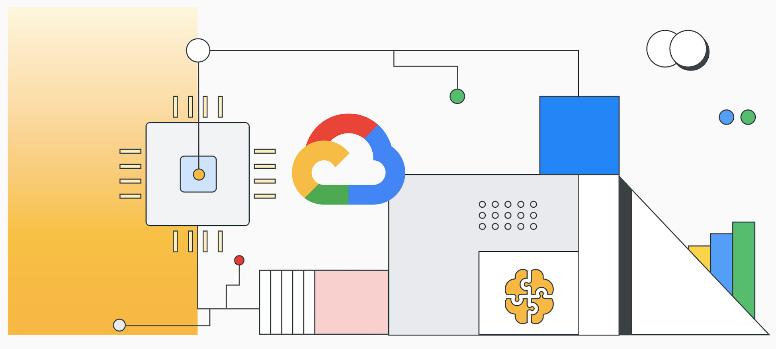Featured
Google Cloud arrives in Africa
The world’s Big 5 cloud providers will now all have a data centre presence in South Africa
Share
- Click to share on Twitter (Opens in new window)
- Click to share on Facebook (Opens in new window)
- Click to share on LinkedIn (Opens in new window)
- Click to email a link to a friend (Opens in new window)
- Click to share on Reddit (Opens in new window)
- Click to share on WhatsApp (Opens in new window)
- Click to share on Pinterest (Opens in new window)
The Big 5 global cloud providers establishing a formal “cloud region” in Africa have made its move. Google Cloud will now join Amazon Web Services, Microsoft Azure, Oracle Cloud and Alibaba Cloud, along with Huawei Cloud, in setting up or partnering with data centres in South Africa.
Just two weeks ago, Alibaba Cloud announced it would partner with Telkom subsidiary BCX to establish a local cloud region, leaving only Google out of the mix.
Google says the new cloud region will help users, developers, businesses and educational institutions across Africa to move more information and tools online, improve access options for customers and in turn, create jobs. According to research by AlphaBeta Economics commissioned by Google Cloud, the South Africa cloud region will contribute more than a cumulative US$2.1 billion to the country’s GDP and will support the creation of more than 40,000 jobs by 2030.
“We believe in growing an open and healthy ecosystem of technology solutions to support Africa’s digital transformation goals, which leads to more opportunities for businesses,” says Niral Patel, director of Google Cloud Africa. “It is part of our company-wide ethos to respect the environment, which is why we operate the cleanest cloud in the industry, supporting sustainable digital transformation. Along with the cloud region, we are expanding our network through the Equiano subsea cable and building dedicated cloud Interconnect sites in Johannesburg, Cape Town, Lagos and Nairobi. In doing so, we are building full scale cloud capability for Africa.”
Google Cloud is already working with customers across the continent – “helping them solve business-critical challenges, get online, and access the benefits of digital technology,” says the company.
In South Africa, Google Cloud works with leading retailer TakeAlot to help their 3-million local customers enjoy a hassle-free online shopping experience. TakeAlot built its e-commerce platform on Google Cloud, which has enabled the business to avoid system crashes during high-traffic periods like Black Friday. In Kenya, Google Cloud works with Twiga Foods – a technology-driven company addressing and improving food security in Africa – to help them connect 1,000 farmers to 140,000 vendors, delivering 12,000 orders every day and storing 2-million kilograms of fresh produce.”
Google also announced the launch of voice typing support for nine more African languages in Gboard, the Google keyboard, namely isiNdebele, isiXhosa, Kinyarwanda, Northern Sotho, Swati, Sesotho, Tswana,Tshivenda and Xitsonga). Further, 24 new languages are now supported on Google Translate, including Lingala, which is used by more than 45-million people across Central Africa.
Google also refreshed Street View in Kenya, South Africa, Senegal and Nigeria with nearly 300,000km of imagery. This helps people virtually explore and navigate neighbourhoods on Google Maps. It is also extending the service to Rwanda, meaning that Street View is now available in 11 African countries.
Africa’s internet economy has the potential to grow to $180 billion by 2025 – 5.2% of the continent’s GDP. To support African entrepreneurs in growing and developing their talent, Google says, it continues to support African small businesses through the Hustle Academy and Google Business Profiles, and to help job seekers learn the skills they need through Developer Scholarships and Career Certifications.
Google, through its $50 million Africa Investment Fund that targets equity investments in tech startups, has since invested in three businesses over the past 9 months: SafeBoda, a transportation app in Uganda and Nigeria, Carry1st, a South African mobile gaming startup and Lori Systems, an e- logistics company based in Kenya.
Google Africa MD says: “We are collaborating with governments, policymakers, NGOs, telcos, business leaders, creators and media so that we can help accelerate Africa’s digital transformation. And it’s the talent and drive of the individuals in the countries and communities of Africa that will power Africa’s economic growth.”
Milestones achieved include the subsea cable, Equiano, now running through Togo, Nigeria, Namibia and South Africa, which is expected to deliver faster, lower cost internet to the continent by connecting St. Helena, Togo, Nigeria, Namibia and South Africa with Europe. A recent economic impact assessment conducted by Africa Practice and Genesis Analytics found that, by 2025, the cable is set to accelerate economic growth with GDPs of Nigeria rising by $10.1-billion, South Africa $7-billion and $260 million in Namibia. During the same time, Equiano should indirectly create 1.6-million jobs in Nigeria, 180,000 in South Africa and 21,000 in Namibia, driven by the expansion of the digital economy and peripheral sectors.
ENDS
Share
- Click to share on Twitter (Opens in new window)
- Click to share on Facebook (Opens in new window)
- Click to share on LinkedIn (Opens in new window)
- Click to email a link to a friend (Opens in new window)
- Click to share on Reddit (Opens in new window)
- Click to share on WhatsApp (Opens in new window)
- Click to share on Pinterest (Opens in new window)
| Thank you for Signing Up |
















